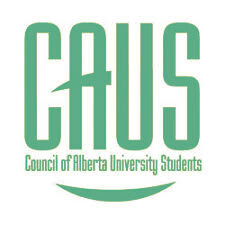CAUS CAMPAIGNS
CAUS calls for the continuation of mental health funding commitments made by the Government of Alberta. This funding ensures that students have access to vital resources on our campuses across Alberta.
The following services at each of our institutions are at risk of being eliminated:
At the University of Lethbridge, 5 counselors are employed directly through the grant and the number of appointments have doubled since first receiving the grant in 2013.
Programs and services that operate with the government's mental health funding include:
personal counselling, group counseling and workshops
peer support training (i.e. RA training, Pride Centre and Women's Center Peer Support)
mental health outreach and education initiatives (i.e. classroom presentations, Mental Health First Aid, GSA Thrive, First Responders to Sexual Assault and Abuse Training, New Student Orientation, etc.)
the majority of sexual violence educational initiatives
At the University of Calgary, there are 14.6 staff supported by this grant including front facing mental health workers, the majority of the health promotion team, and some positions in nursing and reception.
Programs and services that operate with the government's mental health funding include:
Mental Health Promoting Organizational Environments: health promotion, stigma reduction, cultural competence and inclusivity, peer support, training
Non-clinical Mental Health Care: direct service
System Coordination and Leadership: evaluation preparation and reports, administrative support, i.e. for reports and evening hours
At Mount Royal University, The current mental health funding ($280,000/year) from the Ministry of Advanced Education goes until March 31, 2020. It is unclear what will happen subsequently, although there had been discussion of this funding turning into a yearly grant. Individuals on contracts are presently getting nervous about the sustainability of their positions and their initiatives. The funding currently supports counselling, health promotion, outreach, programming, and evaluation.
The funding also supports a variety of programs and services including (but not limited to):
Peer to Peer Mental Health Education program
Suicide prevention workshops (ASIST and QPR)
Mental help folders (references for faculty and staff to support students in need)
Education and outreach
Naloxone workshops
International student kitchen (in partnership with Residence and the International Student Office)
@MRULiveWell Instagram and Twitter accounts
Healthy Campus Steering Committee (and working groups) strategic support (which has included work on incorporating a wellness lens into policy creation and review)
NCHA data analysis and dissemination (including presentation delivery to the campus community)
Consultations with student groups (including LGBTQ+ & Indigenous students)
Support with the National Standard for Psychological Health and Safety for Post-Secondary Students
Alcohol, cannabis, and substance use - events and messaging
Nursing practicum community project coordination
Coordination of the Steps to Wellbeing program
Board Game Cafe - to reduce social isolation amongst student
Coordination of online tools like the Blackboard Mental Health Module, BreathingRoom and Student Health 101 e-magazine
Delivery of mental health presentations in UGST and EAP classrooms
Coordination of New Student Orientation on behalf of Wellness Services
A1/C2 Student Leadership Community of Practice and Committee
Student Mental Health Matters
CAUS encourages you to write from the heart and share how mental health and mental health services available on campus have touched your life. However, if you are stuck for words we have created the following letter templates for you to use or modify when writing to your MLA. We also suggest that if you are sending a letter or email to your MLA you send a copy of it to the Advanced Education Minister, Demetrios Nicolaides. His email address is ae.minister@gov.ab.ca.


